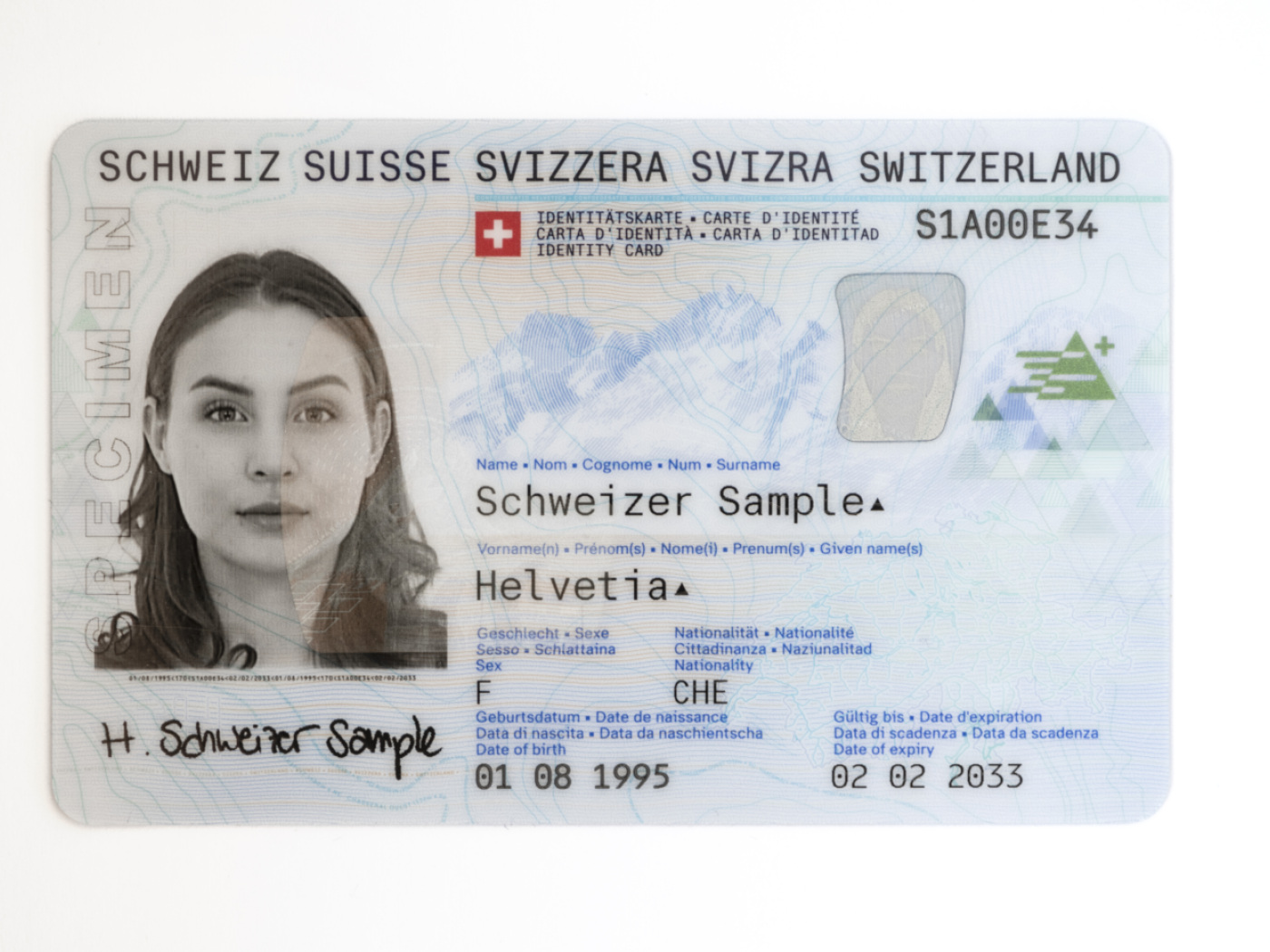
Swiss voters to decide – again – on introducing electronic ID

Three years after rejecting an initial bill, the Swiss will vote again on September 28 on whether to introduce a system for electronic proof of identity. Presented by its backers as a digital milestone, the new law is decried by its opponents for what they see as insufficient data protection guarantees.
In Switzerland, for various reasons, citizens can be sometimes called upon to vote multiple times on the same issue. This is the case with the introduction of an electronic identity (e-ID) system.
In 2021, voters rejected an initial e-ID law, largely because it gave too much influence to private providers. A new version of the bill, introducing a system which is this time entirely in public hands, will be put to a vote on September 28.
>> We want to hear what you think:
More
What does the new bill say?
The Federal Act on Electronic IdentityExternal link paves the way to launch an official digital means of identification which is free of charge and managed solely by the federal government. Today, Swiss citizens at home or abroad have to use an identity card or passport to prove their identity. With the e-ID, they will be able to do so online, without needing to provide a physical document.
The electronic ID will, however, remain optional. Authorities or bodies performing public tasks will have to accept it, but analogue forms of identification will continue to be recognised.
The bill also spells out measures to protect user privacy. Thus, when an authority or company checks an e-ID, it will not be allowed to view or store any data other than what is required. For instance, a person wishing to prove that they are of legal age to purchase alcohol will not provide their date of birth, but only confirmation that they are over 18.
Any flouting of this can be reported to the justice ministry, which will follow up with necessary checks.

More
New Swiss biometric ID card planned for 2026
How will the e-ID work?
Swiss citizens wishing to obtain an e-ID will first need to download an app, or digital wallet, onto their smartphone. This can then be used to store documents digitally.
After that, they can apply for their e-ID online from the Federal Office of Police by scanning their identity document. Their identity will be confirmed by online video verification before the e-ID is issued. Those who prefer can also apply in person at a cantonal identity documents office or, for citizens living abroad, at a consulate.
If voters accept the e-ID this time around, it will be introduced in the third quarter of 2026 at the earliest. In the meantime, the new tool can be tested by downloading a trial versionExternal link of the app.
How does the new e-ID bill differ from the previous one?
In the initial version, the planned e-ID was to be issued by a private company on behalf of the state. This model was heavily criticised. Authorities, concluding that it was a key reason why voters had rejected the bill, were forced to go back to the drawing board.
The future e-ID will be issued exclusively by the federal authorities and the data will be stored in a decentralised way. This means that personal information will not be saved in a central, government-managed database but directly on the user’s smartphone. Citizens will thus retain control over their personal details, thereby ensuring greater security and privacy protection.
Why do the people have to vote?
Both houses of parliament passed the digital identity law by a large majority. However, a committee under the name of “No to the e-ID Law” submitted 55,344 valid signatures against the bill, enough to trigger a referendum. Authorities thus had to organise a popular vote.
Arguments in favour of e-ID
According to the authorities, the introduction of the e-ID will help save time and money. Users will be able to “identify themselves digitally in a secure, fast and uncomplicated way”, the government writesExternal link. As a result, many administrative procedures will be possible online, such as opening a bank account or taking out a telephone subscription. The e-ID should also benefit Swiss citizens living abroad, by giving them easier access to federal government services. The Organisation of the Swiss Abroad also believes it will help Swiss emigrants exercise their political rights and pave the way for the introduction of e-voting.

According to the government, the e-ID will also enable a more reliable identification of parties to electronic transactions, thus strengthening internet security and reducing the potential for abuse.
Lastly, the project is a key step in the country’s overall digital transformation, the government says. The e-ID infrastructure will be made available to cantonal and municipal authorities, as well as to private-sector players. People will moreover be able to use it to store documents, such as proof of residence, extracts from public registries, diplomas, event tickets and membership cards.
Arguments against e-ID
While recognising the benefits of digital progress, opponents of the e-ID law say it repeats the mistakes of the version rejected in 2021.
The main criticism by the members of the referendum committeeExternal link is that it infringes on citizens’ privacy. They point the finger at the technology chosen which, they say, is not yet developed or secure enough. Above all, it provides insufficient protection against the rising incidence of cyberattacks. Although the law prohibits the collection of unnecessary data, its critics still see a real risk of tracking and abuse. They fear that the e-ID will enable companies to collect, link and analyse data to establish behavioural profiles of users. These could then be exploited for marketing purposes.

Opponents also fear that digital identity could open the door to a pervasive surveillance system, putting the very democratic and liberal order at risk.
With time, it could also lead to an indirect obligation: some services could become more difficult to access without an e-ID, giving rise to a form of digital discrimination.
Who is for it and who is against?
All the governing parties support the new e-ID law. An unusual alliance of six political parties (the right-wing Swiss People’s Party, the centre-right Radical-Liberal Party, the Centre Party, the centrist Liberal Green Party, the left-wing Social Democratic Party and the left-wing Greens) has formed in support of the project.
The committee behind the referendum is made up of members of the Pirate Party, the youth wing of the Swiss People’s Party, the ultra-conservative Federal Democratic Union party and citizens’ movements such as Friends of the Constitution, Aufrecht Schweiz and opponents of the government’s anti-Covid-19 measures.
>> Read our survey on e-voting:

More
Most Swiss Abroad won’t be able to vote online in 2027 federal election
Edited by Balz Rigendinger. Adapted from French by Julia Bassam/gw
The SWIplus app provides you with the most important information and updates from Switzerland every day – all in one place. Download it now!

In compliance with the JTI standards
More: SWI swissinfo.ch certified by the Journalism Trust Initiative







































You can find an overview of ongoing debates with our journalists here . Please join us!
If you want to start a conversation about a topic raised in this article or want to report factual errors, email us at english@swissinfo.ch.